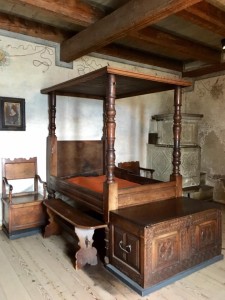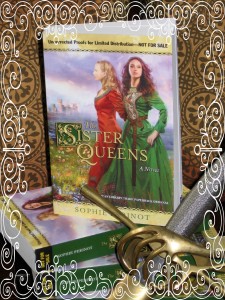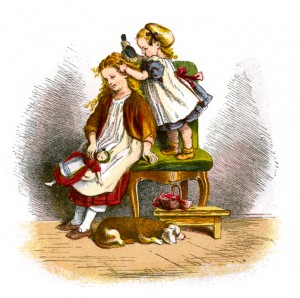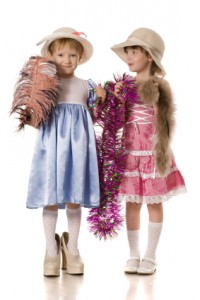Category: Sister Stuff
SCENES FROM THE WORLD OF THE SAVOYARDS: Chateau Chillon
he main characters in THE SISTER QUEENS, Marguerite and Eleanor, may have been the daughters of the Count of Provence, but much of their real power and attraction as royal brides lay in another family connection. These remarkable 13th century women were related through their mother to the house of Savoy. The Savoyards were celebrities in the High Middle ages—a family of considerable political and marital power, whose members were renowned for their personal attractiveness. People wanted to be like the Savoyards, and people (even kings and popes) wanted to be seen with them.
Eleanor had a particularly close connection with her Uncle Peter, Count of Savoy. In December of 1240 Peter arrived in England to advise and support his niece. Henry III of England took to Peter immediately and made much of him—eventually knighting him and granting Peter the Honor of Richmond.
From this point on Peter spent significant time in England, but ever a Savoyard, he did not sever his relationships with his native territory nor with his powerful brothers. Peter owned the legendary Chateau Chillon on the banks of Lake Geneva. He gained this stronghold—and with it control of the road from Burgundy to the Great Saint Bernard Pass and a fleet of ships on Lake Geneva—beginning in 1234 (when he and all the Savoyard brother’s met there upon the death of their father to negotiate a settlement which recognized Amadeus as the head of the house and allowed them to work together to the aggrandizement of all Savoyards rather than turning on each other and diminishing the house through infighting).
I first visited Chateau Chillon when I was 20 years old. It is a marvelously memorable fortress. Here today are some pictures of “Uncle Peter’s place” courtesy of my middle-child who (in her mother’s footsteps) was there today.








Book Trailer for THE SISTER QUEENS
Long before Marguerite de Valois walked the halls of the Louvre, another Marguerite was Queen of France. And her sister, Eleanor, was Queen of England. If you enjoyed Médicis Daughter, I would like to introduce you to The Sister Queens, my debut novel from a few years back . . .
Gifts My Sister Gave Me – Part II: The Giveaway
A sister is a gift. Whether she is the mirror allowing us to see ourselves clearly when we’ve imagined we are somebody we are not, or whether she is a cautionary tale whose mistakes we act to avoid, our sisters shape us in profound ways.
Last week I shared how my sister gave me the gift of reinvention – reinvention as a writer. Today, I am interested in hearing about your sister – specifically I want to know what positive gift or gifts she has given you. I don’t mean that cashmere sweater she sent you for Christmas. I want to know the good stuff — how she made you the person you are today, opened your eyes to something you might not have seen, or otherwise shaped you for the better. The floor (or rather the comments section) is open.
And, in celebration of the fact that my novel, The Sister Queens, makes its debut one month from today I am going to make the sharing fun. I will select two individuals from among those posting their comments (about their sister–see above) to this blog by midnight February 12th and send each of them TWO (2) signed “advance-reader “copies of The Sister Queens – one for themselves and one for their sister.  That means the winners will have galleys of The Sister Queens before anyone can purchase the novel.
That means the winners will have galleys of The Sister Queens before anyone can purchase the novel.
Check this comment thread Monday, February 13th (one week from today) for names of the winners and instructions for those lucky two. Bonne chance!
Gifts My Sister Gave Me – Part I
Whatever our personal relationship with our sisters one thing cannot be denied – they have shaped who we are. They have given us a personality trait, an ambition, a talent, a tolerance that we would not have had but for knowing them. They have given us a “gift”—even if, in some cases, at the time it was bestowed that gift may have seemed a burden not a blessing.
Next week I want to hear from you about the gifts your sisters have given you. And, to encourage you to share (while celebrating the one-month-to-release mark for my novel), there will be giveaway involved.
But today I want to write about one of the gifts my sister gave me. My sister gave me this writing career. Yes, I know that with my debut novel just about to hit shelves it is a tad premature to declare that I have a “C”areer in writing. Forgive me that for the moment. What I am trying to say is my sister gave me permission to be a writer. More than that she gave me a push.
Once upon a time I was a lawyer—an antitrust litigator to be precise, not that it matters really. I’d wanted to be a lawyer since I was a little girl. Dream realized (check). I should have been happy. I wasn’t. I was casting about for something to be next. Asking a question I hadn’t asked in a very long time, “what do I want to be when I grow up.” I think that’s a much tougher question when you already ARE grown up. So much of who you think you are is wrapped up in your professional success. The idea of making a change is scary. Major anxiety. Major. I can’t do major anxiety without my sister. I am betting over the years there have been times she has fervently wished that I could. But if I am going to obsess, stress out, or break down I am going to call my sister. Doubtless this particular existential crisis involved multiple calls (my sister really should have been getting combat pay), but I remember THE call.
“Writer” wasn’t on the table for “next job” consideration. But what is or isn’t “on the table” doesn’t stop my sister (and I am betting it doesn’t stop yours either) Sisters speak wisdom unexpectedly.
“I know you are making up a story right now in your head,” my sister said. She was right of course and, because she knows me better than anyone, better than I know myself, I didn’t deny it. “Whatever that story is,” she said, “pick up your dictaphone and start saying it out loud.”
My husband, children and I were leaving on a beach vacation, I took my dictaphone with me like my sister told me to. I dictated scenes at the seaside. Later, at home, I used the voice-activated feature to dictate while I washed floors. Most infamously (at least in my family) I dictated a scene in the frozen food section of my local grocery store while a clerk looked suspiciously on (industrial spy anyone?). The book that resulted from my sister’s words snagged my agent. My agent found me my audience.
My sister was uniquely qualified to give me this gift (and my life as a writer is one of the greatest dream-come-true gifts of my life). She knew I was a storyteller. She’s a large part of the reason I became one. As children we had a forty-five-minute walk to school (yes, one way but NOT uphill both ways). I filled that time by weaving “continuing sagas” (the more sensational the better, I fear) for my travel companions. I still remember a sci-fi tale of a color coded world, but the salient point here is that my sister alone (discounting our walking companions who went on to lives and places unknown) was privy to this side of me. In school (high school and college) I was known as more of an essayist – and occasionally a poet – NOT one of those people who constantly wrote fiction and squirreled it away. As I went on to be a mild-mannered (ha) lawyer nobody around me knew about the “other” Sophie. I, myself, may even have temporarily forgotten my passion for storytelling. But a sister never forgets.
So thank you sis. In case I haven’t said it before, in case the dedication in my book didn’t make it clear—I owe you one. A big one.
What Would My Sister Do?
My approach to life is to charge along being myself (in case you haven’t guessed that is outspoken, slightly eccentric, and rather type A). But sometimes life presents me with a situation that can’t effectively be handled the “the Sophie way.”
When my strategy for dealing with a particular situation isn’t working, and I face the dilemma of finding an alternate approach I often ask myself, “what would my sister do?” And while some of you might find my approach less authoritative than asking “what would Jesus do” or less humorous than asking “what would Brian Boitano do” as they do on South Park, I like to go with what I know. I am more familiar with how my sister thinks (or at least how I THINK she thinks) and how she acts than I am with the actions and reactions of nearly anyone else on the planet. 
Considering my predicament as if I were my sister is a great way to stop running in circles on my little problem wheel and gain distance from a situation.
The first step to applying “sister think” is to break an issued down into its facts – as if I was going to relate the problem to my sister with minimal editorial comment (and I am NOT good at eliminating editorial comment). Sometimes this step alone is enough to trigger a creative new approach because it backs me away from my gut reaction to the problem and lets me see it more dispassionately.
If seeing the issue broken into discreet pieces isn’t enough to spur a solution, I go the next step. I put myself in my sister’s shoes (metaphorically of course, because sisters do NOT appreciate having their shoes pilfered and worn, particularly before they’ve had a chance to scuff the bottoms). I imagine that I am Irma (this is NOT my sister’s name and I have selected it because it is likely to make my sister laugh hysterically) dealing with the recalcitrant child, or the uncooperative co-worker and address the situation accordingly.
Of course I can’t really be Irma. The best I can hope to achieve is a Sophie-channeled approximation. Still, this temporary personal transformation can work brilliantly—particularly if the problem at hand calls for strengths my sister possesses that I do not (diplomacy and limitless patience come to mind). And I consider this convenient alternative-perspective on life and its situations one of the great gifts that having a sister has given me.
How about you? Do you ever put on your sister’s shoes or borrow your sister’s strategies for dealing with life’s problems?
Literary Sisters, Installment One: Why CAN’T Sisters Be Friends (or, must every sister relationship be dysfunctional?)
This post inaugurates a new series—Literary Sisters—giving me a chance to reflect (rather randomly) upon some of the great sister pairings from literary classics. And what better way to start than with my favorite sisters of all time, Jane and Elizabeth Bennet from Jane Austen’s Pride and Prejudice.
Why Jane and Lizzy? Well, I will admit they remind me (strikingly) of myself and my own sister. But narcissism aside, the way the Bennet sisters are portrayed by Austen—as caring, supportive, best-friends—offers a refreshing change from a large number sister depictions I’ve read more recently. You know the type—bitchy sisters, sisters who steal each other’s boyfriends, sisters who are rivals first and fellow-family-members second (or not at all).
Now I understand there are many unpleasant sister relationships in the real world (and I thank Divine Providence daily that I do not have one) but for HEAVEN’S SAKE, I refuse to believe they represent the majority. “Nasty” certainly doesn’t describe most of the sisters I meet as I move through life. The majority of sisters I come in contact with love each other to death. They would lend their sister their last dollar, or give their sister a kidney if she needed it. And they are far more likely to drive to their sister’s boyfriend’s house and kick his butt for dumping sis than they are to steal their sister’s fellow (“do you think anything might tempt me to accept the man who has ruined, perhaps forever, the happiness of a most beloved sister?”). Certainly sisters fight (and those fights can be wicked, as they poke at every childhood sore), and yes sisters can sabotage each other occasionally, but most of the time they play on the same team. Why then do writers (or perhaps it is publishers—after all they buy the manuscripts) assume only dysfunctional sister relationships are interesting to readers?
It’s the rule of conflict with a capital “C.” Conflict is essential in fiction, that cannot be denied. And nice is considered dull. But there is no rule (none, I checked the rule book for writing good novels) that says the central conflict in a novel involving sisters has to be between those sisters. It is possible to write a compelling “sisters versus the world” book. Or a book in which the main characters are sisters and each face independent difficulties. I would certainly argue that Pride and Prejudice is gripping and has conflict enough without Jane and Lizzy at each other’s throats. I’ve read the book upwards of a dozen times and I am not tired of it yet.
While Pride and Prejudice is not alone in offering a positive portrayal of sisterhood, there is room on the bookshelf for a few more books celebrating sisters as “comforter in chief,” in times of trouble and “celebrant in chief” in times of triumph. And it is possible to write such books without whitewashing or over-simplifying the complex relationship between female siblings.
Why do I care so much? Why do I pine for more books which, like Pride and Prejudice, give us positive models of sister relationships? Because just as fiction imitates life, life imitates fiction (or rather culture in general).
When our culture disproportionately depicts sister relationships that are riven by conflict or that are dysfunctional as they are daily lived, we imply that such relationships are the norm. When something becomes normative we may, unwittingly, excuse people from trying to make bad behavior better. Frankly, if (or when, because my kids sure aren’t perfect) I see my daughters behaving as some sets of sisters in books do, I will punish them and punish them severely. I ask them to be Lizzy and Jane—to tease each other with love, to worry when they see each other looking pale, and to bust Mr. Darcy’s chops if he blights their sister’s hopes. And in my library I keep a separate copy of Austen’s work for each, inscribed with an expression of my hope that they will find not only entertainment between the pages, but elucidation of what sisters should be. After all, Elinor and Marianne Dashwood aren’t bad examples either.
Confessions of an Alpha Female – In Which My Sister Points Out What Should Have Been Obvious
So, we are getting my son a puppy. My son is the shy type and likes constant companionship so a dog seems like a perfect fit. A boy and his dog. . .you know the stories (not Where the Red Fern Grows or stories like that—the HAPPY stories).
I phoned my sister to tell her the news.
“This is going to be his dog right?” she asked. I sensed a certain skepticism. Perhaps she didn’t think he could handle a dog at nine-years of age.
“Oh yes, we’ve talked about the responsibilities,” I babbled. “He helped select the breed and we picked an ultimate people dog, a Cavalier King Charles Spaniel.”
“You’re missing my point,” she replied somewhat impatiently. “How are you going to keep the dog from bonding with YOU? You are such an Alpha. You had better line up a trainer before the puppy even arrives.”
Wow. ‘A trainer for who?’ I was tempted to ask. My son, the puppy, or me? But the question would have been facetious. As soon as the words were out of her mouth and bouncing off the satellite to my mobile phone I knew exactly what my sister meant, and was left wondering why I didn’t see it before. I am a very “in charge” person. Dogs are attracted to dominant people. . If this dog is really going to be my son’s dog we will need some advice on how to get it to bond with my son and see him as the pack leader.
No. I am not going to continue blogging about dogs. I am going to blog about sisters. Because what this story really illustrates (you were wondering, admit it) is one of the driving themes behind my novel, The Sister Queens—our sisters act as mirrors for us; when we forget who we are or when we fool ourselves into thinking we are something we are not, they call us on it. Continue reading Confessions of an Alpha Female – In Which My Sister Points Out What Should Have Been Obvious
Why Our Sisters are NOT Ourselves
Some things stick with you.
Last fall I heard this piece on NPR about breakthroughs in sibling research. It has been with me ever since—rumbling around in my brain.
This is the quote that got me:
Physically, siblings tended to differ somewhat, but they were a lot more similar on average when compared to children picked at random from the population. That’s also true of cognitive abilities.
“The surprise,” . . . “is when you turn to personality.”
Turns out that on tests that measure personality — stuff like how extroverted you are, how conscientious — siblings are practically like strangers.
“Practically like strangers” yet raised together. I’ve certainly had moments when I’ve thought how can my sister and I have had such a different experience of the same childhood or how could we have played the same games (together), walked to the same school (together) and heard the same family stories and yet turned out so very differently? If you have a sibling chances are you’ve had such thoughts as well. At the heart of my questions lay the idea that nurture shapes people, and since my sister and I were raised in the same environment that should have made us similar.
Turns out that’s just dead wrong when it comes to siblings. Being raised in the same environment helps to make us different. The three theories posited in the radio report sounded eerily familiar—though, as an author not a scientific researcher, I’d given them different names while writing The Sister Queens.